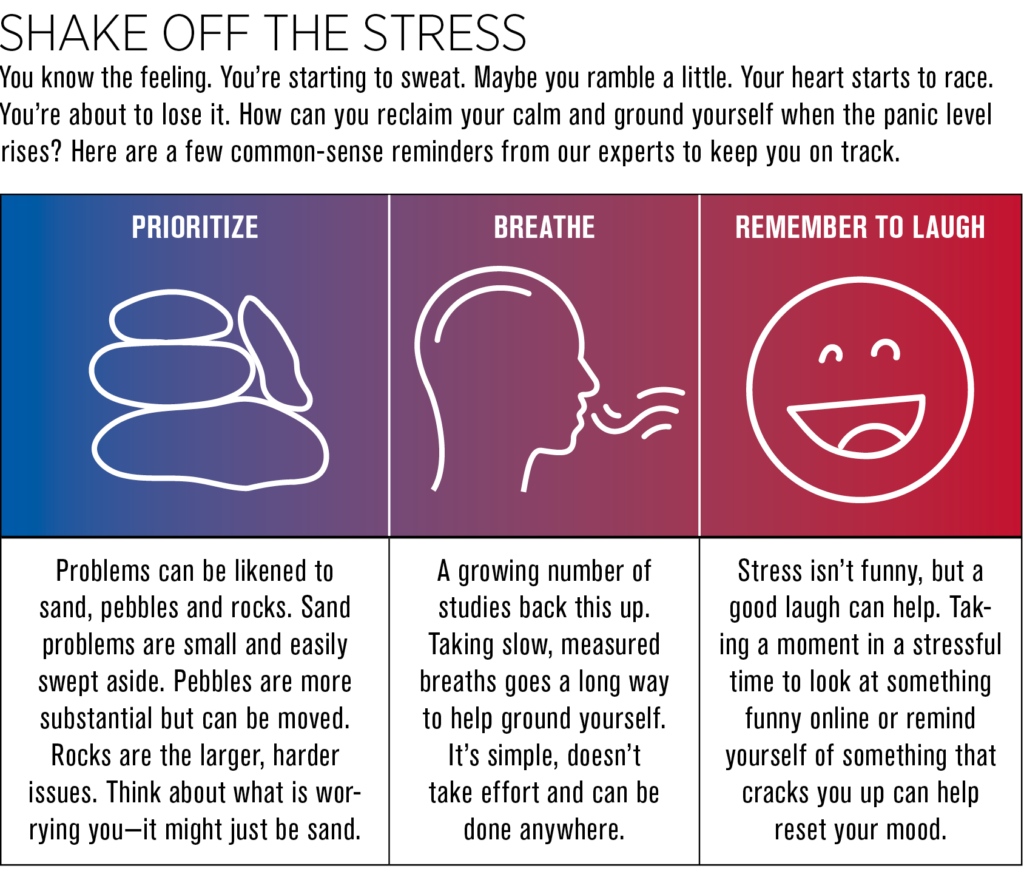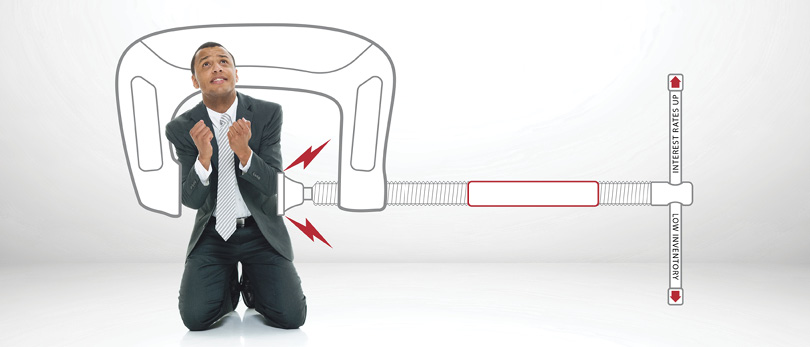With the challenging market conditions that agents currently face, showing signs of desperation can be a negative to clients
By Jason Henninger
It will shock no one that the current state of high interest rates and low inventory in residential real estate doesn’t make for a booming marketplace.
That’s been the case for a while now and doesn’t look to be thawing out too soon. Consequently, it’s easy for new and seasoned agents alike to feel an increase in pressure, which can lead to looking desperate.
Agents don’t want to come off as desperate—a quality that makes buyers and sellers uncomfortable. But what are the causes and warning signs of desperation, and how do you find a way out of it and back to confident, positive sales experiences?
Desperation early on
James Crisp, CRS, real estate professional at eXp Realty in Montclair, New Jersey, has been in the industry for more than 12 years. While he feels stable in his business these days, he was no stranger to desperation in the early days. “The hardest part for me was finding a broker that I trusted because it’s not just about you; it’s also about who you align with and what their goals are,” he says. “It takes time to filter through that, find your footing and lay your foundation. And yeah, you get desperate because you’re not a W2 employee.”
But what kept him going and sticking in the industry this long is learning from that desperation. “I realized that if I have to start over again, I could lose my entire pipeline,” he says. “You learn through the problems. You almost have to become a desperate agent in order to learn what not to do in the future.”

Nicole Mangina, CRS, broker at Windermere Real Estate in Bellevue, Washington, feels similarly. “I’ve been in real estate for 27 years. There have certainly been times in my business that were slower than I like,” she says.
“I don’t think anybody in a solely commission-based career doesn’t have times where it’s slower. But I think we all have ups and downs in our businesses. That’s part of it.
“You have to remember it’s a contact sport, which means you have to get out and connect with people. Anytime we are scared, nervous or stressed, the natural instinct is to withdraw, but you have to get out and connect. That’s where clients come from. It’s that hard and simple all at the same time.”
For Debbie Goodman, CRS, principal broker at Professional Realty in Chattanooga, Tennessee, remembering that human connection kept her from feeling desperate. “I knew from a young age that I would get into the business,” she says. “I didn’t necessarily get into real estate just to make a lot of money, but I have always enjoyed working with people. So many of my clients and customers thought they would never buy a home. Just having the opportunity to assist them in getting into a home or rental meant more to me than the commission I received.”
Signs and solutions
Newer agents who have not experienced the rising and falling tide of the industry may feel the stressors most acutely. They have likely made significant investments—not only in cash but also in time and effort—only to face a marketplace that doesn’t immediately return on the investment. But even a veteran of the industry can feel the pressure if they aren’t hitting the numbers or making the sales they have come to expect. What is the key trait of an agent getting a little frayed by stress? The consensus is that they forget the human element
of the work.
“When we’re scared or stressed, we tend to talk more than we listen,” Mangina says. “If you’re in presentation mode, it’s because you’re stressed and trying to convince somebody to do something, rather than showing up and asking questions and listening.” And being that trusted advisor who can help them make the best move.
Goodman also says the pressure the agent feels will transfer negatively to the client. “When an agent comes off as desperate, it makes a client feel like the agent may not have a lot of experience,” she says, “or is just going to try to sell them anything in order to get a commission. It also may make a client not trust that the agent will work in the client’s best interest.”
Desperate agents treat clients like numbers rather than people, Crisp shares. “When an agent gets desperate, they’re unfocused,” he says. “They always have an answer for everything, but they’re letting their clients slip through the cracks. Remember that we are not in the business of talking about the finish on that countertop or the floor materials. Our business is actually building relationships.”
Of course, the more desperate you are, the fewer sales opportunities will succeed, which in turn can create yet more despair.
How can an agent get off the hamster wheel and back on their feet?
The solution is threefold:
Client education
Shifting the focus from the sale itself to educating clients is the first step. “A big part of our business is education,” Crisp says. “Honestly, that’s probably 60% of our business. The more you educate your clients, the more comfortable they are with you. And they’re easier to stick in your pipeline.”
A solid team
Mangina shares that while the assumption is that agents are very social and extroverted, there can be a lot of isolation in day-to-day business. To counter that, a solid network of colleagues and industry allies makes a big difference. “I have a really solid tribe of real estate people,” she says. “And we’re honest with each other when things are going great and when things aren’t. We’re there to support and pick each other up, brainstorm whatever it is to encourage each other and keep each other moving forward.”
It’s your business
It’s easy to feel that you are adrift, subject to external forces you have no control over. To some extent, that will always be true. But it is important to remember what you can control. During the slower times, the focus can be shifted to self-improvement from a business perspective. Educating your client is one thing, but continuing to educate yourself is also important. “It’s a business just like any other,” says Goodman. “You’re in charge of making your business successful.”

Explore more ways to create work-life balance at TRSmag.com/category/work-life.
Photo: iStock.com/4×6/ChubarovY








